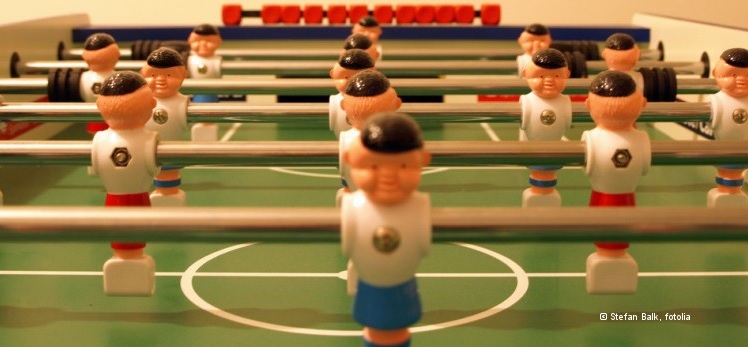Homosexual refugees also have to fear marginalisation and violence in Germany. The "Senlima - be unlimited!" project in Bochum aims to counteract this.
Since December 2014, the Pink ribbonthe psychosocial counselling centre for lesbians, gays and their families in Bochum, has launched the "Senlima - be unlimited!" project for homosexual migrants and refugees aged between 14 and 27. The group meets weekly on Monday evenings. "We offer a space to meet, network and enjoy leisure activities together," says Nicky Ulrich, who is in charge of the project.
It all started when a Rosa Strippe intern wanted to set up a project for LGBT migrants. For Ulrich, it was clear that the programme also had to be aimed at refugees. "Homosexual young people from homophobic cultures in particular are fleeing their home countries because they are no longer safe there and are being persecuted because of their sexual identity," says Nicky Ulrich.
Fear is the greatest burden
They come from countries where lesbians, gays, bisexuals or trans* people are persecuted, punished (with death) or ostracised and considered a disgrace to their own family. For most of them, the biggest burden they have to deal with is fear: fear of coming out to their parents. Fear of meeting up with the Senlima group or going to the "Pink Stripe". Fear of being forced to come out in a care home or to other refugees who have the same cultural background.
According to Nicky Ulrich, self-outing in the shared accommodation centres is therefore hardly possible: the sexual orientation and the culture in which the young people grew up are difficult to reconcile in most cases. "In most cases, not even the social workers know whether the people they look after are heterosexual or homosexual."
Nicky Ulrich talks about a young Syrian man who fled to Bochum with his parents. We call him Aabid here. The young man was raised as a Christian by his family and grew up in a country where homosexuality is considered an "unnatural" sexual offence and is prohibited under the Syrian penal code of 1949. Aabid faces a prison sentence of up to three years in his home country if anyone were to find out that he likes boys - coming out would be unthinkable. "He says he would be beaten and abused if it came out that he is gay," says Nicky Ulrich.
A self-outing is hardly imaginable
Aabid is just one of many. It is therefore not surprising that no one from the Senlima group wants to speak out in public or even be photographed. Even in Germany, the risk of being forced to come out is still too great. "We don't use flyers, for example, because we don't want to put any homosexual refugees in danger by putting something like this in their trouser pocket," explains Nicky Ulrich.
Once a week, Aabid can still be who he wants to be and doesn't have to hide. This is a great relief for the young people, says Nicky Ulrich. "I practically open the door for the refugees and create a safe space where they can socialise."
First and foremost, it is not necessarily about dealing with traumatic experiences or problems. Rather, the aim is to provide emotional relief through leisure activities. "The programme is based on the wishes of the young people and ranges from cinema visits and games to expeditions through Bochum's gay bars.
Last Monday there was a games evening. The language barrier is very easy to overcome, explains Nicky Ulrich. "My main tool is the table football. You don't need to talk when playing table football." The rules are simple and emotions such as sadness, anger or joy are simply conveyed through the game. "To see how the tension simply falls away, how the fear is physically released, that impresses me again and again."










